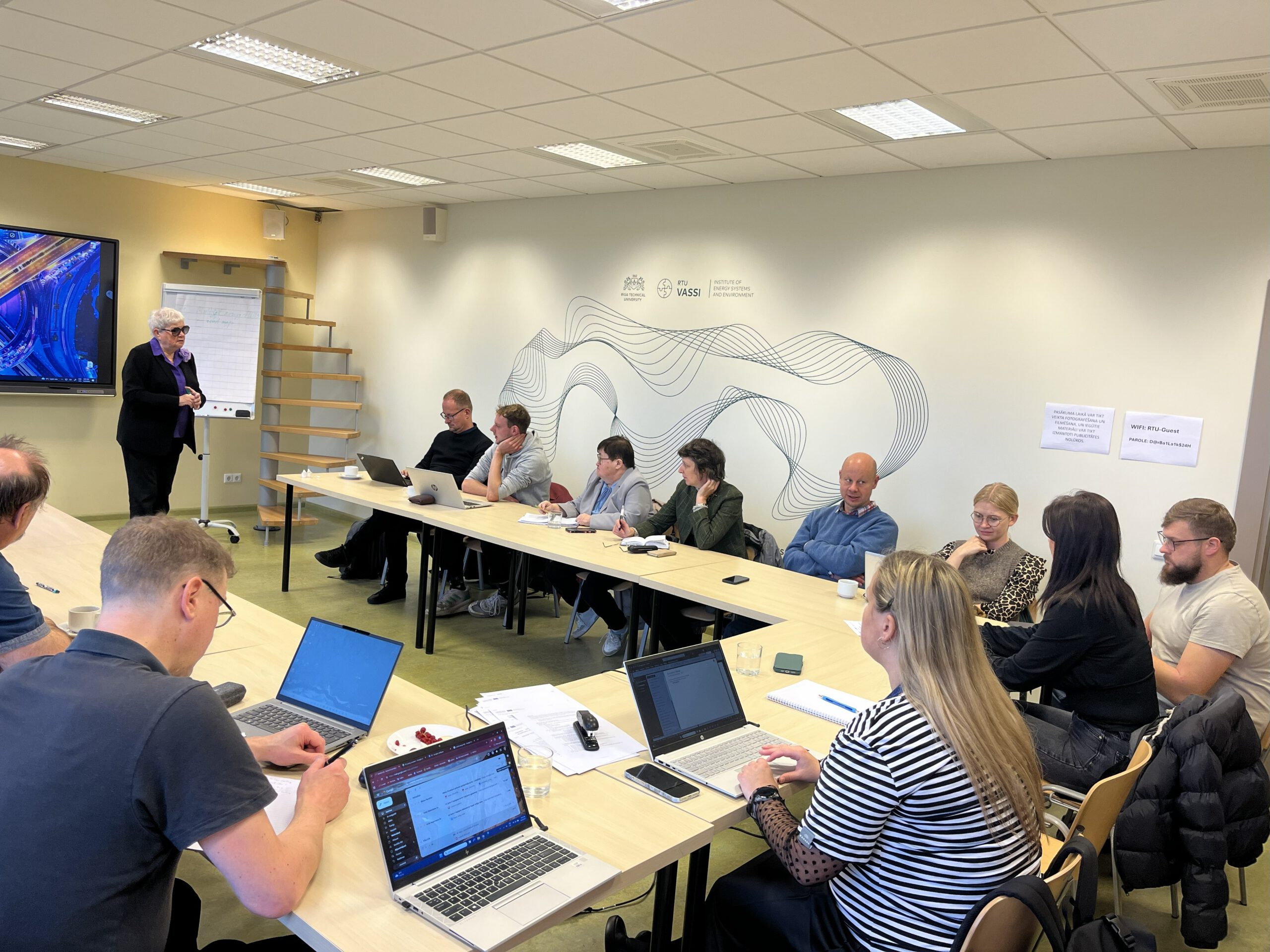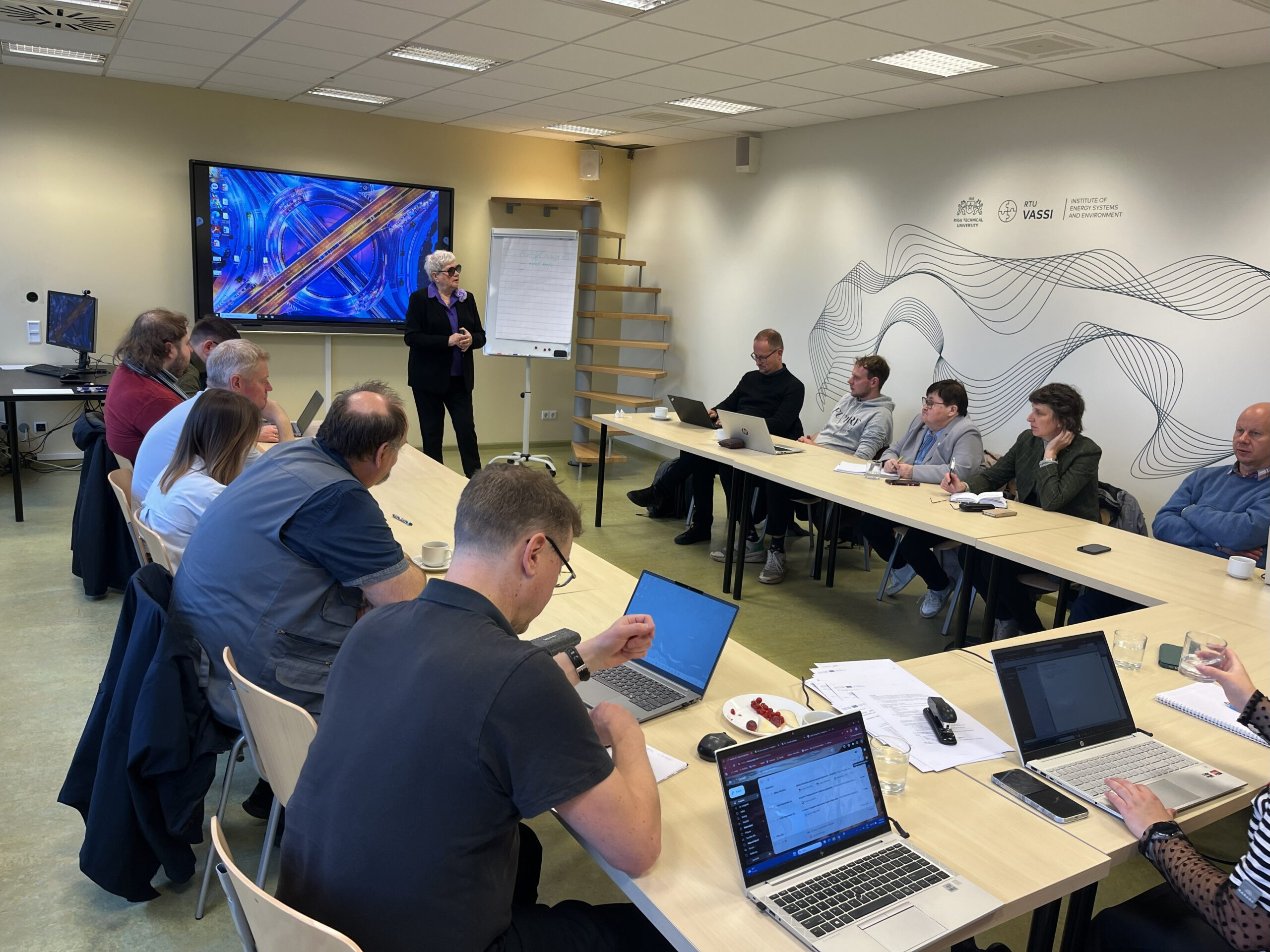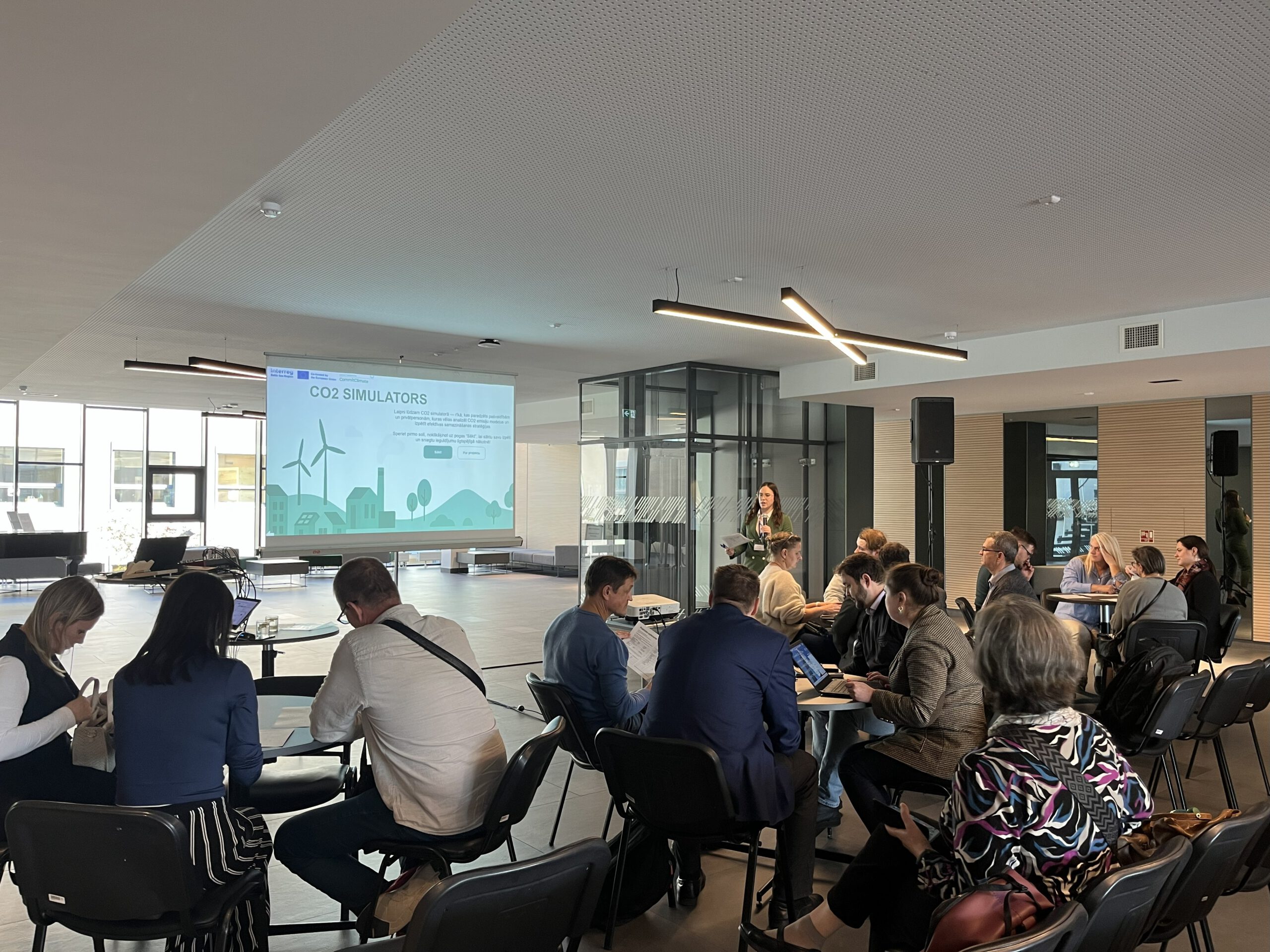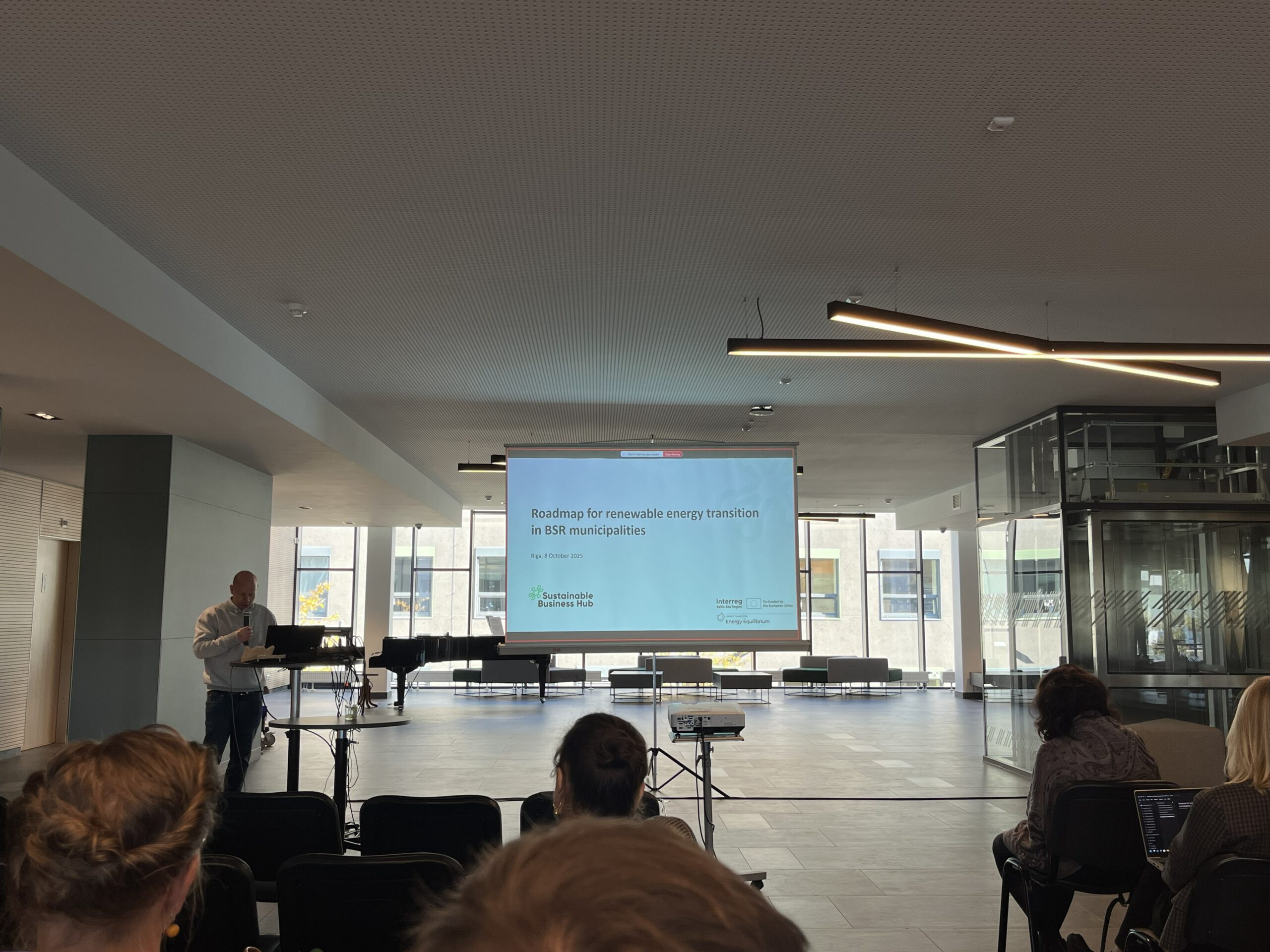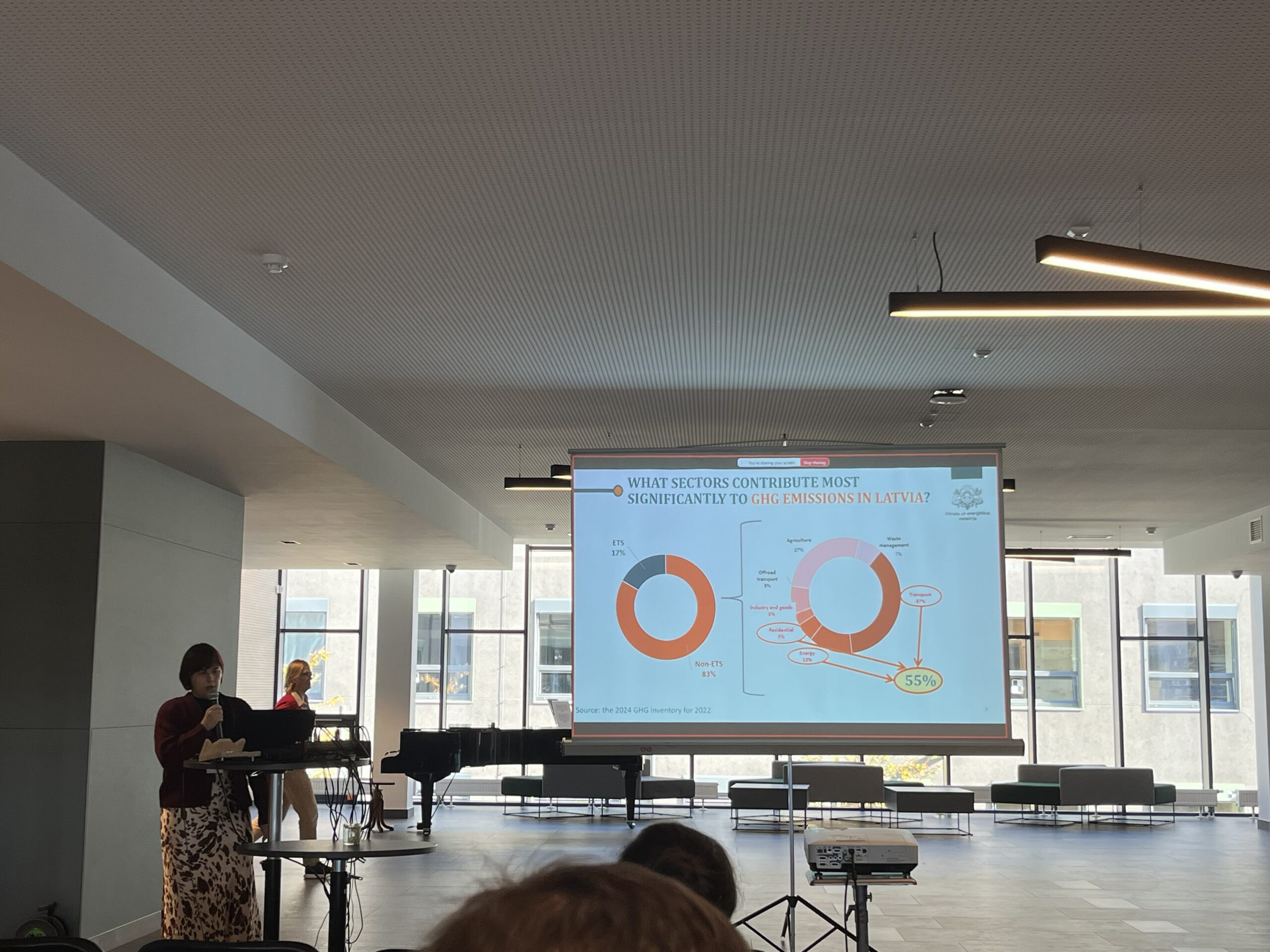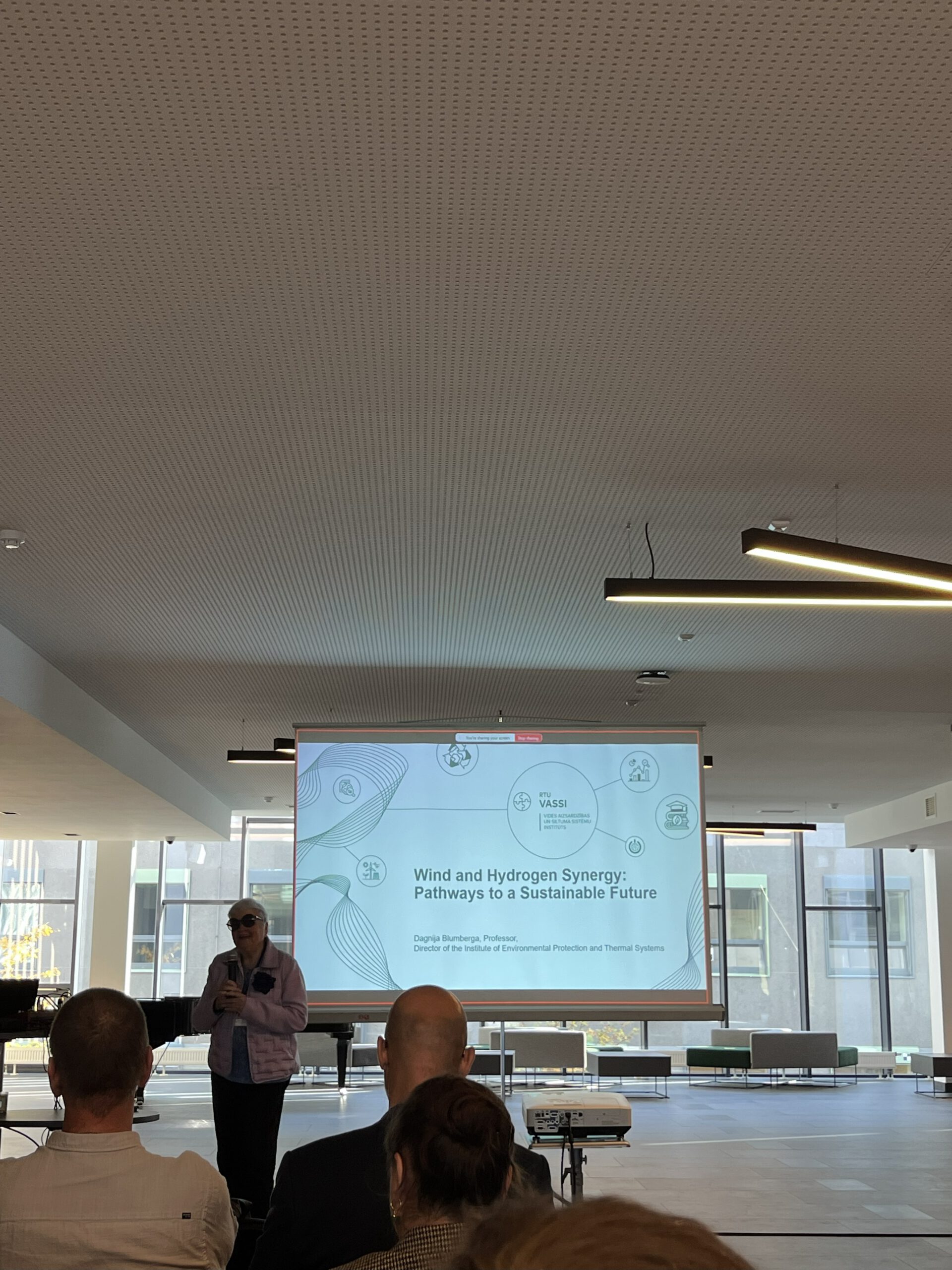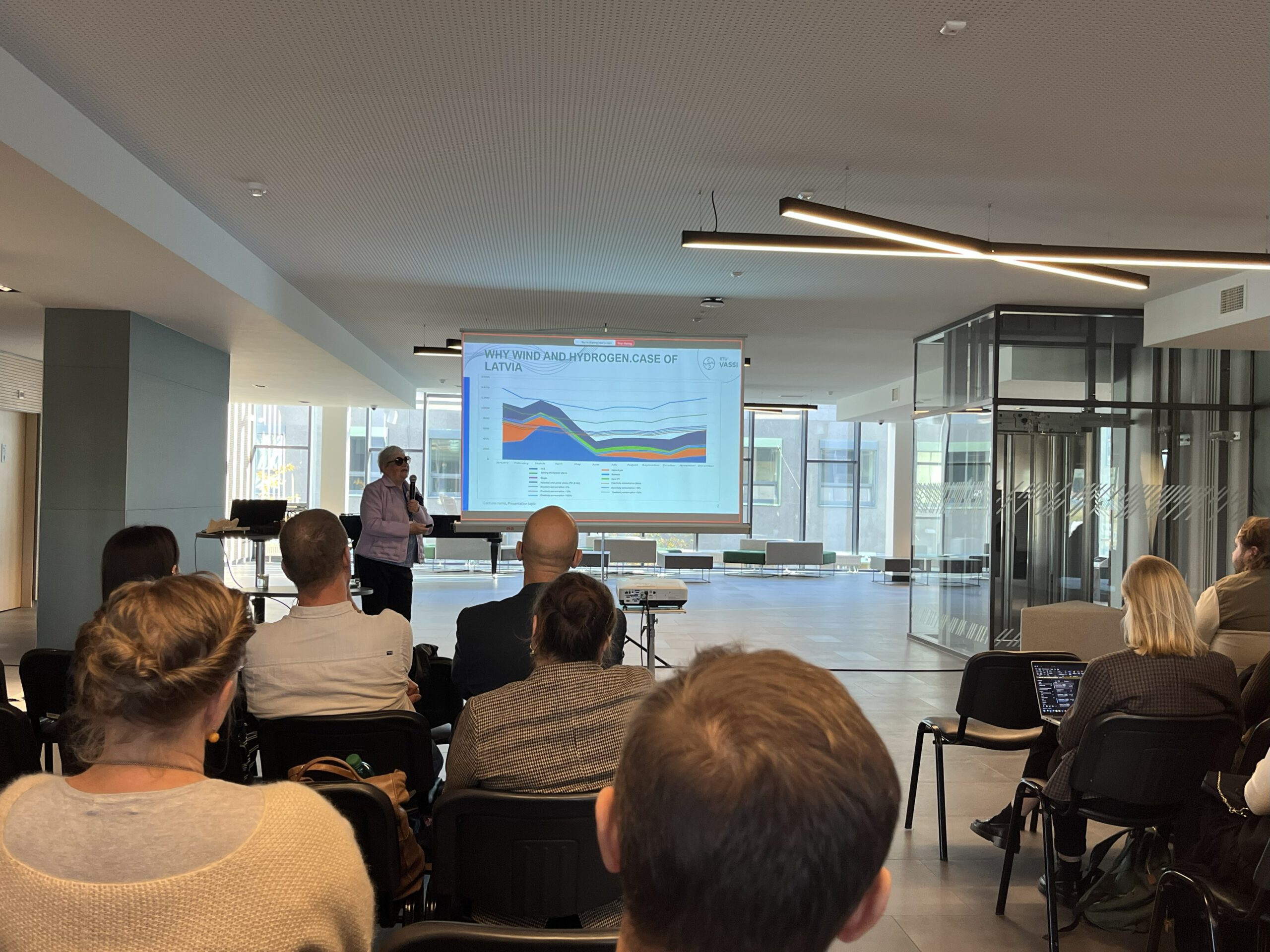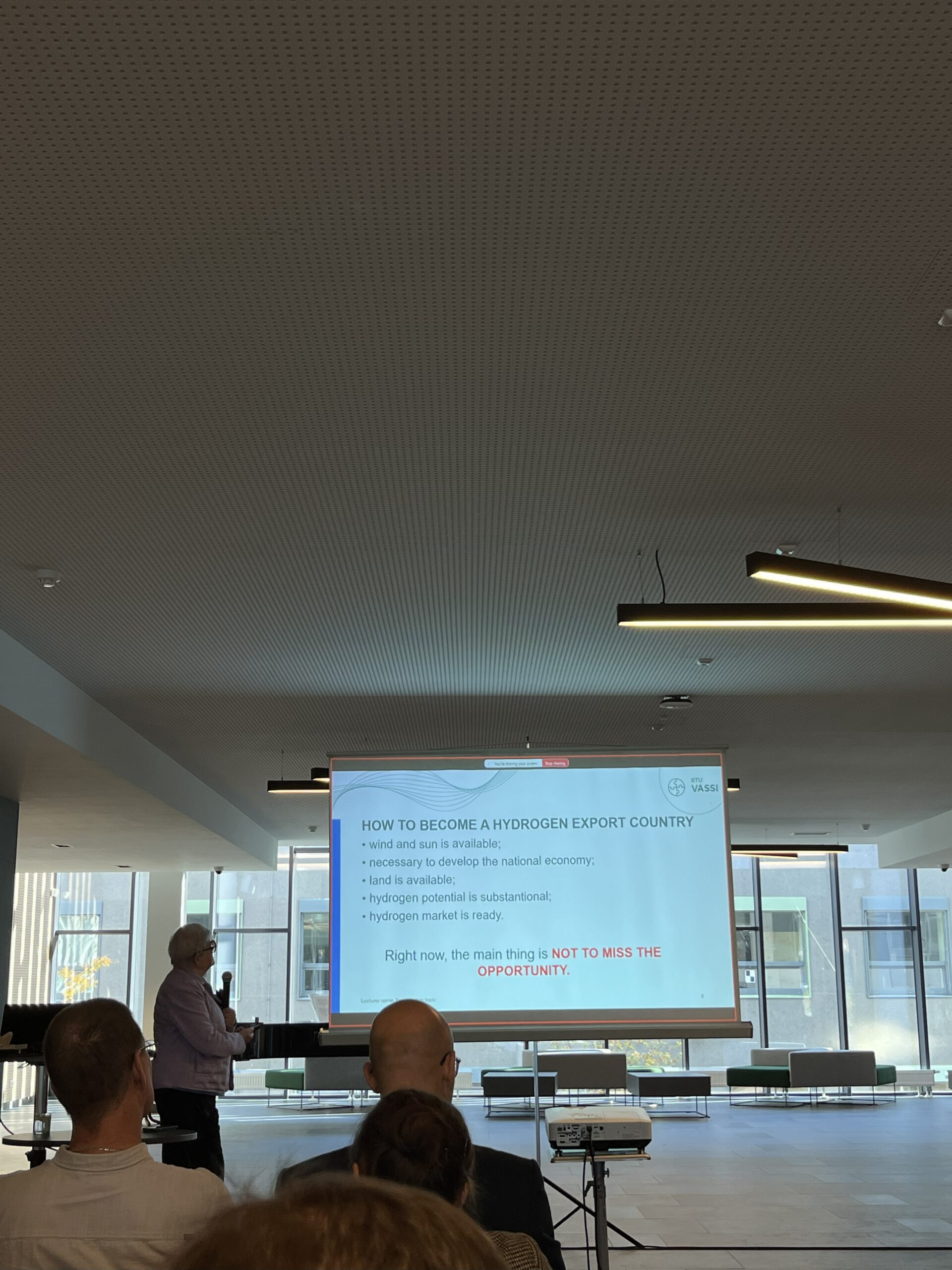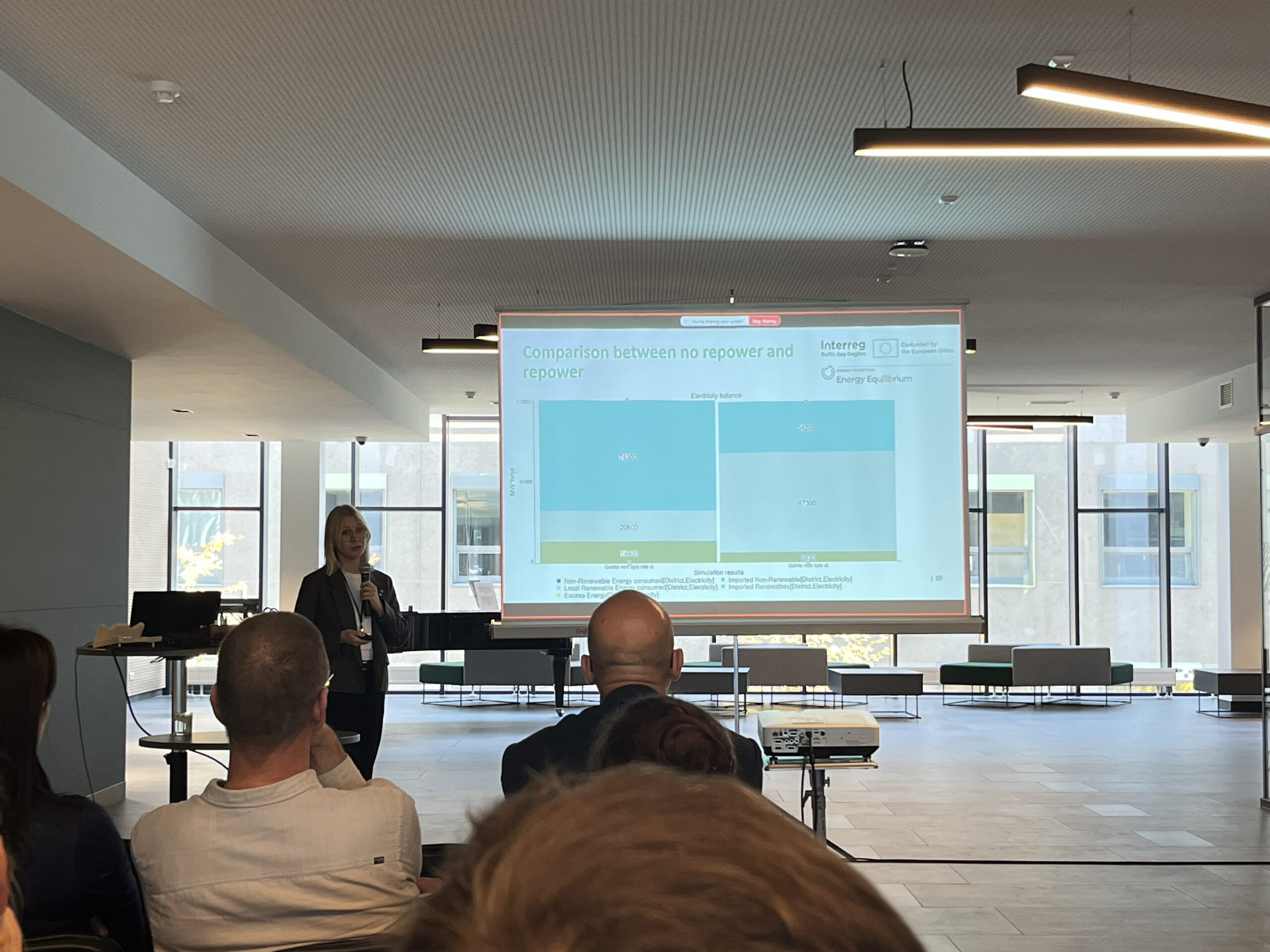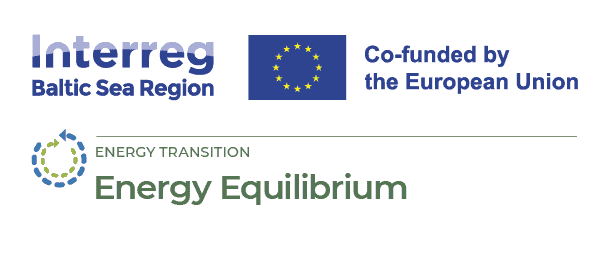
Shaping regional energy futures: Riga hosts Energy Equilibrium seminar and partner meeting
14 October 2025
On October 8–9, 2025, partners of the Energy Equilibrium project gathered in Riga for a two-day event titled “Shaping Regional Energy Futures: From Renewables to Climate Neutrality.” The event brought together municipalities, energy experts, and project partners to discuss local action in the energy transition, the role of hydrogen in Europe’s future, and emerging integrated energy solutions for a sustainable tomorrow.
Municipalities at the heart of the energy transition
A major focus of the seminar was the essential role of municipalities in advancing renewable energy and climate-neutral solutions. Representatives from Liepāja, Kuldīga, and Tomelilla municipalities shared their experiences on implementing climate strategies, scaling renewable energy projects, and using data-driven tools to guide local decision-making.
Furthermore, in her keynote “Wind and Hydrogen Synergy: Pathways to a Sustainable Future,” Professor Dagnija Blumberga from Riga Technical University presented the vast potential of hydrogen as a clean, flexible energy carrier. Hydrogen, when coupled with wind and solar generation, opens new pathways for multi-energy hubs — local or regional systems that integrate electricity, heating, cooling, mobility, and storage into one coordinated network. Such hubs allow municipalities and energy communities to balance demand and supply, reduce energy losses, and accelerate the decarbonization of transport and industry. Together, these developments point toward a future where hybrid energy systems — linking renewables, hydrogen, and smart digital management — play a central role in achieving climate neutrality.
During the practical workshop, participants explored the Energy Equilibrium and CommitClimate platforms — innovative digital tools designed to help municipalities manage their energy data and plan more effectively for the transition. The discussions highlighted that municipalities are not only implementers of national climate policies but active innovators, driving local change and shaping a more resilient regional energy landscape.
Successful partner meeting and next steps
The second day of the event was devoted to the Energy Equilibrium partner meeting, where partners reviewed project progress and discussed the remaining steps toward completion. A key focus was the ongoing work on the User Manual, a comprehensive guide that compiles the project’s methods, tools, and best practices.
The draft version of the User Manual has now been prepared, and partners are working together to finalize and enrich it by integrating valuable comments, new examples, and improvements suggested during the meeting. Once completed, the manual will serve as a practical resource for municipalities and stakeholders across the Baltic Sea Region, helping them apply Energy Equilibrium solutions in their own contexts.
In addition, partners agreed on the importance of distributing a survey to target groups and regional stakeholders. The survey will collect feedback and insights on how the project has supported municipalities and influenced their approach to the energy transition — providing an important perspective on the project’s effectiveness and long-term value.
The meeting was considered a success, strengthening collaboration and setting a clear course toward completing the project. While much progress has been achieved, partners emphasized that final refinements and validations remain to ensure that all outcomes are of high quality and ready for long-term use beyond the project’s lifetime.
Meeting in Riga confirmed a common vision — that renewable energy is the foundation of Europe’s sustainable energy future. By integrating renewables, regions can significantly reduce reliance on fossil fuels and ensure a cleaner, more balanced, and climate-neutral energy system.
This article was prepared and published by Laura Kristiāna Vičmane.






